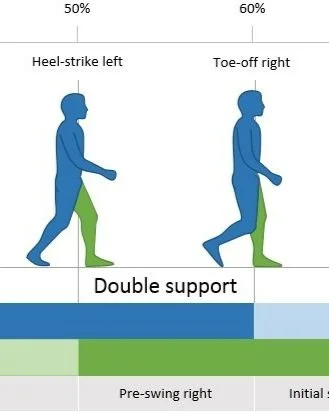ANGELA ENTZMINGER
Storyboard Revisionist at Nickelodeon
Today’s interview is with Angela Entzminger, storyboard revisionist at Nickelodeon and host of “The Animated Journey” podcast. My goal behind these interviews is to not only getting to know people in the industry to celebrate what they have accomplished, but to also go behind the scenes and get an idea of who they are at their core: their personality, what motivates them, how they think about themselves, how they think about their craft, talk about their struggles, their values… And most importantly, to learn from them.
A quick intro:
In this interview we talk about the importance of relationships, of mastery and constant learning, we talk about grit, we talk about purpose. She makes an important point of separating who you are from what you do, your work from your identity, which is an important psychological component for emotional stability and resilience to stress.
What stood out for me in this interview is the clear process she described in finding herself. From feeling lost in her earlier jobs, to finding storyboarding, to the struggle of making it a career. To build our self-identity we have to begin by questioning ourselves, from there we get clarity about who we are, our passions, and what we stand for. By practicing that ideal we ultimately move from clarity to conviction and commitment. That’s what these answers make me see in her. She has that kind of confidence in her values and ideals of someone who is living them on a daily basis. In my experience, that confidence doesn’t just appear out of nowhere, it isn’t just cheap talk, it is forged and tested by walking the difficult path while staying true to the person you want to be.
“it’s good to strive to create work that inspires others, that encourages others to be the best they can be.”
(I love this phrase, this is what this website is all about after all)
1. Give us a small introduction about what you do and your professional journey so far.
I work at Nickelodeon as a storyboard revisionist on The Loud House. When I was a kid, I loved watching cartoons, recording cartoons on my VCR and drawing what I saw. Some of my favorite artists were Friz Freleng, Walt Disney, Jim Henson and Don Bluth. When you’re a kid everything on TV seems brand new, so I was quite dismayed to learn that many of my favorite artists were already dead by the time I had discovered them. I decided, since I could not meet them in person, and since I did not know any Black animators, that I would become the Black Disney, and inspire Black girls and boys, and everyone else, to get into animation.
Today, I am inspired by many artists, including Steve Ahn, Grace Liu, Kirk Shinmoto, Louie del Carmen, Ida Hem, John Nevarez, Justin Copeland, David Woo and Ethan Becker, because of their knowledge of the craft and their willingness to share that knowledge with others.
2. Why animation?
I worked in both the publishing industry and the tech industry prior to working in animation. I’ve always had a variety of interests and it was not until my mid-20s that I decided that animation was the path that I wanted to pursue as a full-time career. Every job I had before then was either unfilling, boring, weird, badly managed, awful, or even if my coworkers were great, just did not seem quite right. As a storyboard revisionist, I’m finally drawing, which I’ve discovered, along with writing, is what I enjoy doing the most.
All work feels real to me, even work that is not animation. Whether you’re being paid or not paid, you’re providing a skill for someone and that is necessary. Always take pride in your work.
I believe that purpose comes from you as a person, not just your work. It’s important to separate yourself from your work in order to prevent burnout. You are not your job. Your job is what you do for money and/or fun. However, it’s good to strive to create work that inspires others, that encourages others to be the best they can be.
3. What does a day in your life look like today?
Storyboard revisionists are responsible for making corrections or updates to an episode. For example, we’ve all seen movies where a character is holding something in one hand, then in the next scene, they’re holding that object on another hand, then in the next scene, that object is missing. That’s a continuity error, and those are the types of things that revisionists are called on to correct. We also fix things like a perspective that’s not working, change backgrounds, clean-up drawings, change the time of day, and we export PDFs and SB Pro files for our animatic editors.
As a revisionist, I receive work when an episode needs updates or corrections. My directors will email me and we’ll have a Zoom call and they’ll walk through what they would like to be changed, or they will email me changes to the boards. Sometimes they redline the changes, sometimes not, depending on how specific they want the poses to be.
4. Do you have any practices/habits that help support your performance in your work?
I take online classes to sharpen my skills so that I can become a more proficient artist. Those classes include character design, gesture drawing, and perspective. I also watch a ton of YouTube videos. Fundamentals are important! If you know your fundamentals, you can draw cool stuff.
I also enjoy drawing my own characters and stories and posting them online. I treat my personal drawings as a job unto itself. It’s easy to fall down the rabbit hole and not draw for fun, and then months later you realize that everything you’ve done is for your company. It’s important to draw what you want to draw on your own time. It helps you remember why you got into this career in the first place, and it’s a good boundary between yourself and your day job. If you have your own stuff to work on, you won’t worry if you’re not getting every single gag you wanted into your boards for work, or if the director decides to change something to better fit the story.
5. What was one of the biggest challenges of your career/life and how did you overcome it?
The biggest challenge was getting a full-time job in the industry. Everyone knows it’s competitive. But you don’t KNOW how competitive it is until you’ve spent several years striving to break in to become a production assistant. I went through the entire gamut of emotions - anger, rage, sadness, despair, pity, joy, sometimes on a daily basis. It was incredibly discouraging to do all the things people tell you to do - network, go to conventions, post online, meet recruiters, get freelance jobs, and still not have a full-time job, and see other people getting jobs. The only way to get over this is to go through it. Improve your work, meet people, and create art until you get a job. There’s no secret formula or secret art skill. That’s it.
6. What personal skills/qualities do you think helped you reach where you are?
My motto is: never say die. I spent over a decade working at jobs that were either OK or I despised. There was no way I wasn’t going to get this to work.
Also, I want to become a great artist. Not just a good board artist. Not just a good showrunner. I want to become a master at the craft. That takes time and practice. And it’s fun. It’s fun to practice and it’s fun to see your skills improve.
And, I don’t do this solely for myself. It helps immensely that I enjoy talking to people. People make a society. People matter. If you care about people and helping people, I believe you will have a long-lasting career. I enjoy mentoring and teaching people how to do what I enjoy doing, and how they can get a job and become the artists they want to be.
That mindset propelled me into the position that I am in today.
7. What is the one thing you know to be true about yourself?
I’m not a quitter, that’s for sure.
8. Do you have a personal philosophy? What does that mean to you?
All of us are here for a purpose. As a Christian, for me, that means serving Christ through helping people. The best way I can help people is through my art - inspiring them through the show that I work on and the art I create. It means being a great employee and kind to my coworkers and doing good work. It means being kind online. It means mentoring and teaching people what I do. Everyone has a purpose regardless of their beliefs - it’s our job as people to lean into that.
9. What do you think are your greatest strengths in your work?
I possess excellent communication skills gleaned from years of practice, trial and error, and previous jobs. If I am unclear about something, I ask my directors. I watch tutorials, take classes, and ask friends and coworkers so that I can create better work. Knowing that you don’t know everything, and being willing to ask questions is a skill that everyone can learn. I highly recommend it!
10. What, in your eyes, is the most challenging part of your work?
Some days there are not a lot of revisions, and that can feel weird, especially working from home, because you want to be useful. The toughest thing can be finding productive things to do related to the job so that you don’t become a quarantine potato.
The other tough thing is all of the world’s problems are in full view right now - COVID, police brutality, politics, fires, rampant unemployment. You name it, it’s happened in 2020. Things right now are bad. It’s weird creating cartoons when the world is imploding. Sometimes you have to turn off the news, take a walk, take a nap, and call your family and friends.
11. What are you looking for at this time in your life? Do you have a vision for the near future?
I want to pay off my student loans, get married, have kids, buy a house, and get a bunch of pets. Financially, animation can help me afford the loan and house part, which will in turn free up my time for the married and kids part.
I am working on becoming a board artist, a director, and a showrunner. And I would also like to teach storyboarding at the university level. The goal is to work in the industry for at least five years and then teach in the evenings and on the weekends.
12. If you were to give any advice to your younger/less mature self, what would that be?
Oh man, learn how to draw hands TODAY. And become a boss at perspective. PRACTICE MORE. EVERYDAY! Also, don’t get student loans, they’re stupid. And get on Instagram and post comics and storyboards. And don’t listen to mean or insulting people - they don’t know what they’re talking about, and they’re hurting inside.
You can connect with Angela at:
Instagram: @sketchysoul






In this post, we will try to take those basics and go more in-depth, looking at the gait from a slightly more functional and anatomical angle. We will cover the main muscle groups, timings, and bone structures responsible for moving us forward and answer the question: What makes a walking gait successful?